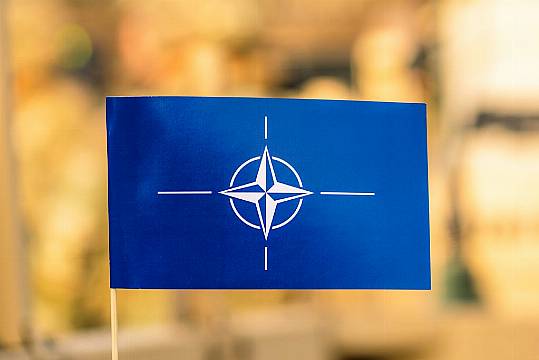Nato has announced the formal suspension of a key Cold War-era security treaty in response to Russia’s withdrawal from the deal.
The alliance said on Tuesday that members who signed the Treaty of Conventional Armed Forces in Europe are now freezing their participation in the pact.
Most of Nato’s 31 allies have signed the treaty, which was aimed at preventing Cold War rivals from massing forces at or near mutual borders.
It was signed in November 1990, but not fully ratified until two years later.
Nato said “a situation whereby allied state parties abide by the treaty, while Russia does not, would be unsustainable”.
Russia’s foreign ministry announced earlier on Tuesday that Moscow had finalised its withdrawal.
The long-expected move came after both houses of the Russian parliament approved a Bill proposed by President Vladimir Putin denouncing the treaty, known as CFE. Mr Putin signed the Bill into force in May this year.
The treaty was one of several major Cold War-era treaties involving Russia and the United States that ceased to be in force in recent years.
Russia suspended its participation in 2007, and in 2015 announced its intention to completely withdraw from the agreement.
In February 2022, Moscow invaded Ukraine, sending hundreds of thousands of Russian troops into the neighbouring country, which also shares a border with Nato members Poland, Slovakia, Romania and Hungary.
Russia’s Foreign Ministry said the process of the formal withdrawal from the treaty had been completed, without elaborating what that entailed.
North Atlantic Council Statement on the Allied response to Russia's withdrawal from the Treaty on Conventional Armed Forces in Europe
Tap the image to read the statement ↓— NATO (@NATO) November 7, 2023
It blamed the US and its allies for the withdrawal and the West’s allegedly “destructive position” on the treaty.
“We left the door open for a dialogue on ways to restore the viability of conventional arms control in Europe,” it said. “However, our opponents did not take advantage of this opportunity.”
The statement further said that “even the formal preservation” of the treaty has become “unacceptable from the point of view of Russia’s fundamental security interests”, citing developments in Ukraine and Nato’s recent expansion.
In Brussels, Nato said its allies who had signed up to the pact “intend to suspend the operation of the CFE treaty for as long as necessary, in accordance with their rights under international law”.
The alliance underlined that its members remain committed “to reduce military risk, and prevent misperceptions and conflicts”.
Nato said its members will continue to “consult on and assess the implications of the current security environment and its impact on the security” of the alliance.







